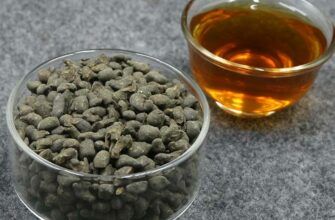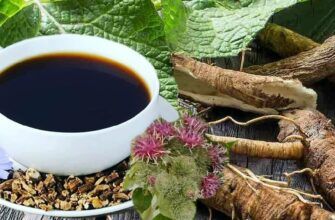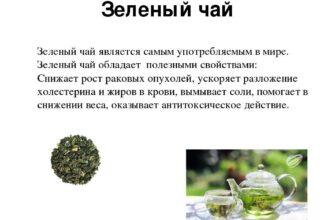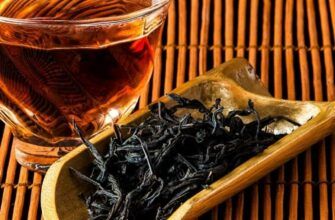Want to get more energy, improve digestion and make your skin more resistant to the signs of aging? Then you will definitely want to know about lemongrass. It is a healing berry with many beneficial properties, which has been used in traditional Chinese medicine for thousands of years.
Traditionally, lemongrass has been used in the treatment of liver disease and adrenal dysfunction, but its beneficial properties extend to many more areas.
- Useful properties of lemongrass
- Relieves inflammation
- Supports adrenal function, helping us deal with the effects of stress
- Improves liver function and digestion
- Protects the skin
- Increases mental performance
- Promotes healthy sexual function
- lemongrass tea recipe
- The history of lemongrass
- How Lemongrass Works
- Side Effects of Lemongrass
Useful properties of lemongrass
Relieves inflammation
Thanks to its high concentration of antioxidants, lemongrass helps fight free radicals and reduces the inflammatory response that underlies modern diseases such as cancer, diabetes, and heart disease. Free radicals turn on and off certain genes that cause cellular and tissue damage and accelerate the aging process.
Due to its ability to positively influence the immune system and fight inflammation, lemongrass can help stop the development of atherosclerosis (hardening of the arteries), balance blood sugar levels, prevent diabetes, and restore the acid-base balance of the body.
In the course of research to determine the antitumor properties of magnolia vine, active lignans were isolated from it (schisandrin A is especially important), which have chemoprotective properties.
Studies looking at the effects Schisandra has on organs, tissues, cells, and enzymes have shown that it helps control the release of white blood cells that cause inflammation and improves tissue repair. It also has a positive effect in the treatment of thrombocytosis, improves metabolism, oxygen consumption, bone formation and has an antitoxic effect.
Supports adrenal function, helping us deal with the effects of stress
Lemongrass is known as an adaptogenic remedy. It helps regulate hormonal balance naturally and therefore improves our ability to cope with stress, both physical and psychological. Adaptogenic herbs have been used for thousands of years to naturally increase the body's resistance to environmental stress, anxiety, exposure to toxins, emotional trauma, mental fatigue, and mental illness.
Lemongrass nourishes the adrenal glands and reduces levels of “stress hormones” like cortisol. As a result, mental abilities, physical endurance and metabolic health are greatly improved.
The data obtained indicate that the inhibitory effect of Schisandra adaptogens makes them natural antidepressants that have a positive effect on hormonal levels and brain function, even under conditions of stress and overwork.
Don't forget that there is a direct link between reducing stress and improving immune function: the more stress you have, the less able you are to protect yourself from disease. With the help of adaptogens, the body naturally copes much better with the following tasks: maintaining reproductive health, normal skin condition, vision, cardiovascular system and preventing infections such as influenza (flu) and even the common cold.
Improves liver function and digestion
Much research on lemongrass focuses on liver function, especially on the production of various liver detoxification enzymes. Lemongrass helps increase enzyme production, increases antioxidant activity, and improves circulation, digestion, and the ability to remove waste from the body. It has been reliably established that the use of lemongrass tea significantly strengthens the immune system, protects against infections, prevents indigestion and various gastrointestinal disorders, and also has a beneficial effect on liver health.
Dozens of studies over the past 40 years demonstrate the effectiveness of lemongrass in cleansing the liver, treating pneumonia, preventing the development of problems in pregnant women, as well as reducing allergic reactions, acute gastrointestinal diseases, gastric hyper- and hyposecretory functions, chronic gastritis and stomach ulcers. out of the exacerbation stage.
Some small studies also show that schisandra is useful in the treatment of chronic hepatitis as an adjunct when used with causal therapies.
A randomized, parallel, placebo-controlled study conducted at the Taichung Health Department in China found that patients had improved liver function. Forty subjects were divided into a control group and a placebo group.
Compared with the control group, lemongrass significantly increased antioxidant capacity and reduced blood levels of thiobarbituric acid, free radicals, and superoxide anion radicals in the blood. In the group that took lemongrass extract, an increase in glutathione peroxidase and glutathione reductase was noted. And during long-term use, accelerated oxidation of low-density lipoproteins and a decrease in the level of inflammatory markers were observed.
In 2010, a study published in the International Journal of Clinical Pharmacology and Therapeutics found that lemongrass may even help liver transplant patients. It increases the production of the compound Tacrolimus, which prevents liver transplant rejection.
Blood concentrations of this compound are significantly increased in liver transplant patients after taking lemongrass extract. The mean increase in mean blood tacrolimus concentration was 339% in the higher-dose schisandra group and 262% in the lower-dose group. Side effects associated with tacrolimus, such as diarrhea and indigestion, were also significantly reduced in all patients, and liver function improved.
Protects the skin
Lemongrass is a natural beauty cocktail that can protect the skin from wind, sun, allergic reactions, dermatitis, environmental stress, and toxin buildup. Schisandra chinensis is widely used to treat skin conditions due to its anti-inflammatory properties.
A 2005 study in rats showed that schisandra extract inhibited ear edema by reducing skin dermatitis, immune cell filtration, and the production of cytokines, which are markers of inflammatory skin diseases in humans.
Increases mental performance
Since ancient times, lemongrass has been used to boost energy levels. Many centuries ago in Russia, the Nanai people used it to increase the endurance of hunters who went on long journeys with almost no rest and food. Schisandra chinensis is often used to naturally improve mental performance and increase concentration, motivation and improve memory.
One of the most remarkable properties of lemongrass is that it gives energy in a different way than caffeine, affecting the release of various stress hormones and changing blood sugar levels.
As you probably know, caffeine use (especially when overdosed) can cause side effects such as jitteriness, anxiety, and increased heart rate, while lemongrass actually does the opposite. It essentially makes you feel calmer and also fights fatigue syndrome.
Research also shows that lemongrass consumption protects against neurological and psychiatric disorders, including:
- neurosis
- depression
- schizophrenia
- anxiety
- alcoholism
- Alzheimer's disease
Promotes healthy sexual function
Studies show that lemongrass has a beneficial effect on fertility and hormonal levels. It helps to increase libido, prevent sexual dysfunction and positively affects the reproductive organs, including the uterus.
Since lemongrass has a positive effect on the production of hormones, including estrogen, it can help in bone regeneration and the normal formation of bone mineral density. It is useful for the prevention of diseases such as osteoporosis. It is widespread among older women as they experience hormonal changes.
lemongrass tea recipe
Ingredients:
- Water
- Dried lemongrass berries
- Tablespoon
- Cup
- Lemon
- Honey
Buy dried lemongrass from an organic food or health food store. You also need to purchase filter bags.
Pour two to three cups of water into the kettle and bring to a boil.
Place two or three tablespoons of dried lemongrass in a filter bag. We put the berries at the rate of 1 tablespoon per 1 cup. If you want your tea to be stronger, you can put two tablespoons of berries in a glass of tea.
Angry the filter bag with berries with boiling water. Let the drink brew for 15 minutes. Pour yourself a cup of hot lemongrass tea. To enhance the flavor, you can add lemon juice or honey to the tea. Honey is a natural sweetener that you can use instead of sugar.
The history of lemongrass
Lemongrass (Chinese magnolia vine) has a special place in history, as it has long been used along with other ancient herbs - ginseng, goji berries and reishi - by Taoist masters, Chinese emperors and elites. In Russia, lemongrass first gained recognition as an "adaptogen" in the 1960s. Information about it was published in the official medical manual of the USSR, after studies showed the ability of lemongrass to help with adrenal insufficiency, heart problems and the negative effects of stress.
Interestingly, lemongrass got its name "berry of five tastes" due to its peculiar taste. It has five distinct taste properties: bitter, sweet, sour, salty, and pungent. Its taste properties are extremely important for understanding the beneficial properties. The secret of Schisandra's healing power lies in the fact that it has the properties of all five elements accepted in traditional Chinese medicine (TCM). This means that it works along several "meridians" within the body to restore internal balance and health.
Influencing almost every organ system in the human body (according to TCM for 12 “meridians”), lemongrass has many uses and benefits. TCM defines lemongrass as an herb that helps balance all three of the body's inner treasures: Jing, Shen, and Qi.
Most often, lemongrass is used to improve the function of the liver and adrenal glands. But it also has other benefits: it stimulates the brain (improves attention, concentration, memory), improves digestion, maintains hormonal balance and nourishes the skin. Studies have shown that in healthy subjects, Schizandra generates changes in basal levels of nitric oxide and cortisol, which are present in the blood and saliva.
Unlike many other herbs or supplements, lemongrass can be taken for a long time without side effects or risks. It is believed that the longer you take it, the better it affects the body as a natural adaptogen.
Some herbs that are useful for improving liver function may become unsafe when taken for a long time. But lemongrass is safe for daily use even by people with sensitive digestive systems and low tolerance to supplements.
How Lemongrass Works
Historically in TCM, lemongrass has been used to bring balance between yin and yang. It helps to “calm the heart and calm the spirit”, positively affects the brain, kidneys, liver and lungs.
Lemongrass is a multi-component herb, and there are several mechanisms by which these elements can act as phytoadaptogens affecting the central nervous, endocrine, immune, respiratory, cardiovascular, and gastrointestinal systems. Studies have shown that lemongrass inhibits the oxidative process that occurs in various diseases and as a result of which healthy cells, tissues and organs die.
It also has a strong antioxidant effect. This has a positive effect on blood vessels, smooth muscles, the release of fatty acids into the blood (such as arachidonic acid) and the biosynthesis of inflammatory compounds. This leads to the renewal of blood cells, increases the elasticity of arteries, blood vessels, which improves blood circulation. This is one of the reasons why lemongrass increases the body's stamina, coordinates the accuracy of movements, and stimulates mental performance, even when a person is under stress.
A large number of pharmacological and clinical studies conducted over the past five decades show that Schizandra increases physical performance and stress-protective effect against a wide range of harmful production factors. Due to its unique properties, lemongrass:
- helps prevent inflammation
- removes heavy metals from the body
- tones up
- helps in the treatment of heat stroke, skin burns, frostbite, hormonal disorders and heart disease.
A study published in 2015 by the Department of Korean Medicine at Dongguk University found that schisandra fruit has a beneficial effect on intestinal flora. It helps to prevent various metabolic syndromes and reduces the risk of potentially gaining weight. Researchers have found that Schisandra has a major impact on lipid metabolism and gut microbiota modulation. This leads to a decrease in waist circumference, fat mass and glucose levels.
Bacteroides and bacteroides are two forms of microbiota that are increased due to exposure to lemongrass, which showed significant negative correlations with fat mass. Rominococcus is another important form of microbiota that is reduced by lemongrass. This leads to a decrease in high-density lipoprotein cholesterol and fasting blood glucose.
Side Effects of Lemongrass
No serious side effects have been found with regular use of lemongrass. However, studies of its properties were still carried out on animals.
It is not recommended to use lemongrass for pregnant women. Since no studies have been conducted to identify the effect of the plant on the health of a pregnant woman and child.
It is impossible to predict how actively Schisandra may interact with other medications. If you are taking medication, it is best to check with your doctor before you start consuming lemongrass. Some studies have found some degree of interaction between schisandra and drugs used in the treatment of cancer. Lemongrass can affect drugs that pass directly through the liver. This may increase the risk of increased levels of toxicity or reduce exposure to these drugs. And this can potentially be extremely dangerous for the patient.
Read more:





